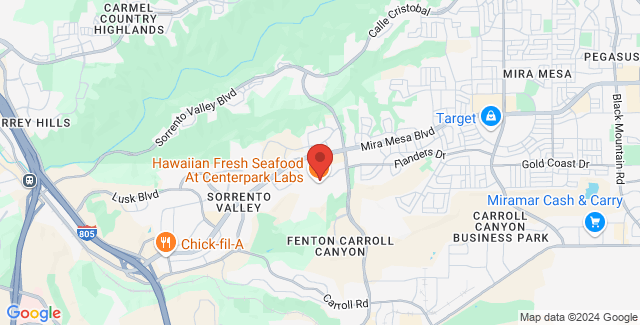Violations of Antitrust Laws
Antitrust laws are meant to protect competition in the marketplace. Competition is considered beneficial because it saves consumers money and encourages businesses to make better products. In a competitive market, companies must charge lower prices or offer higher quality products in order to be successful in gaining consumers’ business. Antitrust laws are meant to preserve competition in order to promote these consumer benefits. Violations are considered a type of white collar crime because they hurt competition, cause an increase in consumer prices, and can potentially damage the economy.
There are three main antitrust laws: the Sherman Antitrust Act, the Clayton Act, and the Federal Trade Commission Act.

The Sherman Antitrust Act
The Sherman Antitrust Act was passed in 1890 and has since stood as the key law regarding competition in the free market. It outlaws “every contract, combination in the form of trust or otherwise, or conspiracy, in restraint of trade or commerce among the several States, or with foreign nations.” This means that it is illegal for any one firm to create a monopoly in an industry by engaging in practices that hurt competition.
The Clayton Act
First passed in 1914, the Clayton Act was revised in 1950. The Clayton Act is a major civil statute intended to protect competition and to keep prices from skyrocketing due to mergers, acquisitions, or other business practices. By giving the government the authority to challenge large-scales moves made by corporations, the Clayton Act provides a barrier against monopolistic practices.
The Federal Trade Commission Act
Like the Clayton Act, the Federal Trade Commission Act of 1914 is a civil statute. It governs interstate commerce, attempting to maintain healthy economic competition in that realm. The act established the Federal Trade Commission, a body that enforces the Federal Trade Commission Act’s stipulations.
In addition to these three acts, antitrust violators may be found guilty of criminal activity or civil wrongdoing through other laws. Some of the other possible charges include: perjury, obstruction of justice, making false statements to the government, mail fraud, and conspiracy.
Punishment for Antitrust Law Violations
Violations of the Sherman Antitrust Act include practices such as fixing prices, rigging contract bids, and allocating consumers between businesses that should be competing for them. Such violations constitute felonies. As such, they may be punished with heavy fines or prison time. Individuals may be required to pay up to $350,000 or have to spend up to three years in prison. Corporations can be forced to pay up to $10,000,000.
Since the Clayton Act and the Federal Trade Commission Act are civil statutes, those convicted of violating these laws do not receive prison time. Instead, they may be forced to pay fines and damages.
Enforcement of Antitrust Laws
Antitrust laws are enforced by government agencies as well as by private individuals. The Department of Justice (DOJ) plays an important investigative and enforcement role in criminal antitrust cases. The DOJ sometimes works with other agencies, such as the FBI, to gather the evidence it needs to prosecute violators of antitrust laws. Information may also be gathered through searches sanctioned by the court and by offering immunity to those who provide information about antitrust law violations to the Department of Justice.
Civil cases involving violations of the Clayton Act can be filed by state attorney generals or as class action lawsuits by groups of individuals with similar claims. Private individuals who have been harmed by Clayton Act violations may be eligible to receive an amount triple their actual losses in addition to winning compensation for court and attorney fees.
Prominent Antitrust Cases
One significant case in which antitrust laws were successfully enforced involved vitamin producers who were accused of fixing prices and committing other gross antitrust violations. The Antitrust Division of the Department of Justice uncovered evidence of a cartel that had created illegal agreements regarding all aspects of vitamin production, market allocation, and product pricing. The cartel’s scheme targeted major U.S. companies to which it sold as well as consumers. As a result of the lawsuit, firms and individuals from the U.S., Germany, Switzerland, Canada, and Japan were convicted of violating antitrust laws. Former high-level executives were imprisoned and fines of more than $850 million were imposed on the various firms involved.
Other, more recent antitrust lawsuits have targeted powerful players in a variety of industries. For example, a lawsuit accusing the NFL (National Football League) of violating antitrust laws was filed on May 16, 2003. Hamilton County Commissioner Todd Portune filed the suit, which alleges that the NFL placed uncompetitive restraints on trade that inflated the cost of building new stadiums.
In another recent case, Visa and MasterCard began an appeal of an antitrust suit filed against the two credit card companies by the Department of Justice. In the original case, it was decided that a rule preventing banks from issuing credit cards from Visa and MasterCard rivals American Express and Discover was illegal. Visa and MasterCard claimed that the rule did not inhibit competition. The decision on the appeal is forthcoming.
Contact an Attorney
If you have been accused of an antitrust violation, please contact an experienced defense attorney in your area.
Related to Antitrust Law




